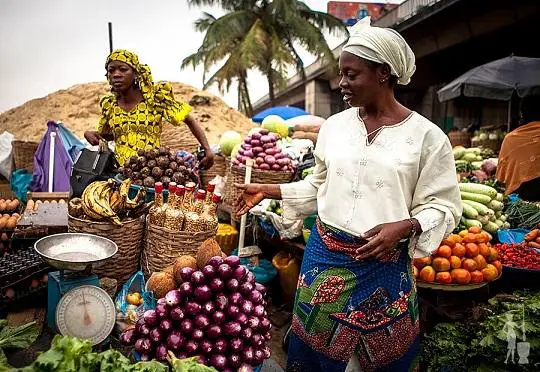- Most countries in North Africa are struggling with searing poverty and economic vulnerabilities.
- Work opportunities in the region are limited especially for the women and youth. Most workers are engaged in low-productivity informal jobs.
- The World Bank’s Built to Include: Reimagining Social Protection Systems in the Middle East and North Africa report argues that social protection policies could help.
One of the root causes of poverty and vulnerability in North Africa is the decades-old system driving youth and women exclusion in the labour market, a new World Bank report reveals.
According to the World Bank, most countries in North Africa have been struggling with poverty and vulnerability for decades. Increasingly, work opportunities in the region are getting limited, particularly for women and youth. Across the economies, most workers are engaged in low-productivity informal jobs.
Safety nets to mitigate youth and women exclusion
The report, Built to Include: Reimagining Social Protection Systems in the Middle East and North Africa, however, offers help. It argues that social protection policies can play a crucial role in reducing labor market exclusion. This is by facilitating access to productive employment, protecting workers, and providing a safety net for youth and women.
While these policies may be viable, social protection policies across North Africa keep falling short. The World Bank noted that most of the poor in these countries do not receive income support. Additionally, majority of workers are not covered by pensions or unemployment insurance.
Read also: How wars in Africa are sucking billions from poor economies
The social protection policies were described as ill-prepared to meet the challenges resulting from an ageing population. They were also faulted for failing to tackle the impacts of advancing technology and climate change.
“Countries in the MENA region need to build inclusive and adaptive social protection systems to respond to the immediate crises they are facing today, while simultaneously reducing labor market exclusion down the road in a fiscally responsible way,” World Bank Vice President for the Middle East and North Africa Ferid Belhaj said.
Social protection systems needed in North Africa
The report identifies reform priorities to make social protection systems in North Africa more inclusive and efficient.
The first priority is building a shock-responsive system to deliver income support and opportunities to the poor. At the moment, some countries in the region are already making good progress on this endeavor.
“The next priority should be to expand the coverage of social insurance among vulnerable informal workers. That should be accompanied by expanded support to enhance the productivity of informal workers and to increase the employability of youth and women—along with the elimination of barriers to women’s employment,” the report highlighted.
The countries also need to redesign their pension systems to support active aging, including by eliminating incentives for early retirement.
Women-led enterprises need support
“While there is no single reform path, there are some guiding principles that can be followed to move toward a more inclusive social protection system,” Lead Economist and Lead Report Author Cristobal Ridao-Cano said.
Another report by the United Nations Economic Commission for Africa (ECA) and Oxford Economics Africa agrees. It notes that governments in the region need to foster a more favourable environment for women-led enterprises.
If adopted, the move would put North African economies on a path of faster, more inclusive and resilient growth.
Read also: North Africa charting a revolution in Africa’s industrialization
“The report underscores that female entrepreneurship and women-led SMEs tend to create more jobs for women. They are thus key for bringing North African women into the labour market and helping reduce the large gender gaps in employment in the region,” an economist at the ECA Office for North Africa Amal Elbeshbishi said.
Current employment figures in North Africa show that women account for a significantly lower share of the working age population than the global average.
This means that less than 20 percent of North Africa’s employed working-age population is female against a global average just above 40 percent.
Female entrepreneurs face huge challenges
This trend has worsened further in the wake of the Covid-19 pandemic compounded by the region’s recent economic challenges.
According to ECA, female entrepreneurs and female business owners face many hurdles. From difficulties in accessing information, markets, financial services, land, and other assets persist in the region. This, alongside other inequalities in ownership of resources such as land often stunt women’s access to credit, limiting their businesses.
“By enhancing the economic opportunities for women, gender-smart investing also supports social, educational, and health outcomes. This in turn boosts sustainable development, job creation, and resilience during times of economic crisis,” Director of Consulting at Oxford Economics Africa Cobus de Hart said.
The preliminary findings of the joint report were recently presented to North African policymakers, academics, private sector, and development partners.
